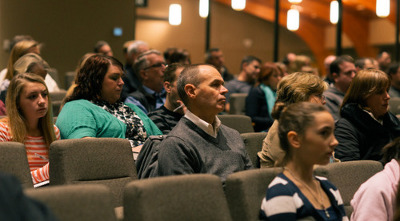
I was once asked to help a church process how to get younger people to attend. After we discussed some recommendations for change, a man pulled me aside and said, "Son, we don't need no fancy ideas around here. We like being a small church."
I soon learned he represented the feelings of the church as a whole. They thought they wanted to reach younger people, but the truth was—when faced with change—they were really satisfied with the church as it had been for many years.
There's nothing wrong with being a small church. Let me say that again. There is nothing wrong with being a small church. In fact, in some communities, what is considered small is actually large by comparison to churches in larger cities. I'm not opposed to small churches, but I do have a problem with some small-church mentalities.
I think there is a difference.
As long as there are lost people nearby, I believe the church has much work to do. And any organization, Christian or secular, that refuses to accept some changes will stop growing and eventually die.
The fact is that growing a church is hard work. It's relatively easy to keep things small or stop growth. In fact, I've seen lots of things that keep a church from growing.
Here are a 21 of those:
- Make the entry to serving in the church lengthy or complicated
- Develop followers not leaders
- Squelch any dream except the pastor's own
- Refuse new people a voice at the table
- Make sure everyone knows who is in charge—and it's not Jesus
- Cast your vision—but only once
- Only do "church" inside the building
- Demand that it be done the way it's always been done
- Give up when change is resisted
- Make excuses when things go wrong
- Quit dreaming
- Resist any organized system, strategy or plans to grow the church
- Stop praying
- Insist you have all the answers before you "walk by faith"
- Never challenge people
- Treat new people as outsiders
- Always refer to the past as the good times
- Put more energy into structure than serving
- Allow gossip to fester
- The ministerial staff does everything
- Be stingy investing in the next generation
Whenever I do a post like this, I get a common—and expected—question: If these are ways not to grow a church, then what are some ways to grow a church? That is one of the main topics I write about in other posts. But for simplicity's sake, try doing the opposite of some of these things I've listed and see how they help the church to grow.
What am I missing? What else will keep a church from growing?
Ron Edmondson is the senior pastor at Immanuel Baptist Church in Lexington, Kentucky. For the original article, visit ronedmondson.com.
Get Spirit-filled content delivered right to your inbox! Click here to subscribe to our newsletter.
Dr. Steve Greene is now sharing stories, teachings, and conversations with guests who lead with love on Love Leads, a new podcast. Listen now.
Dr. Mark Rutland's
National Institute of Christian Leadership (NICL)
The NICL is one of the top leadership training programs in the U.S. taught by Dr. Mark Rutland. If you're the type of leader that likes to have total control over every aspect of your ministry and your future success, the NICL is right for you!
FREE NICL MINI-COURSE - Enroll for 3-hours of training from Dr. Rutland's full leadership course. Experience the NICL and decide if this training is right for you and your team.
Do you feel stuck? Do you feel like you’re not growing? Do you need help from an expert in leadership? There is no other leadership training like the NICL. Gain the leadership skills and confidence you need to lead your church, business or ministry. Get ready to accomplish all of your God-given dreams. CLICK HERE for NICL training dates and details.The NICL Online is an option for any leader with time or schedule constraints. It's also for leaders who want to expedite their training to receive advanced standing for Master Level credit hours. Work through Dr. Rutland's full training from the comfort of your home or ministry at your pace. Learn more about NICL Online. Learn more about NICL Online.


